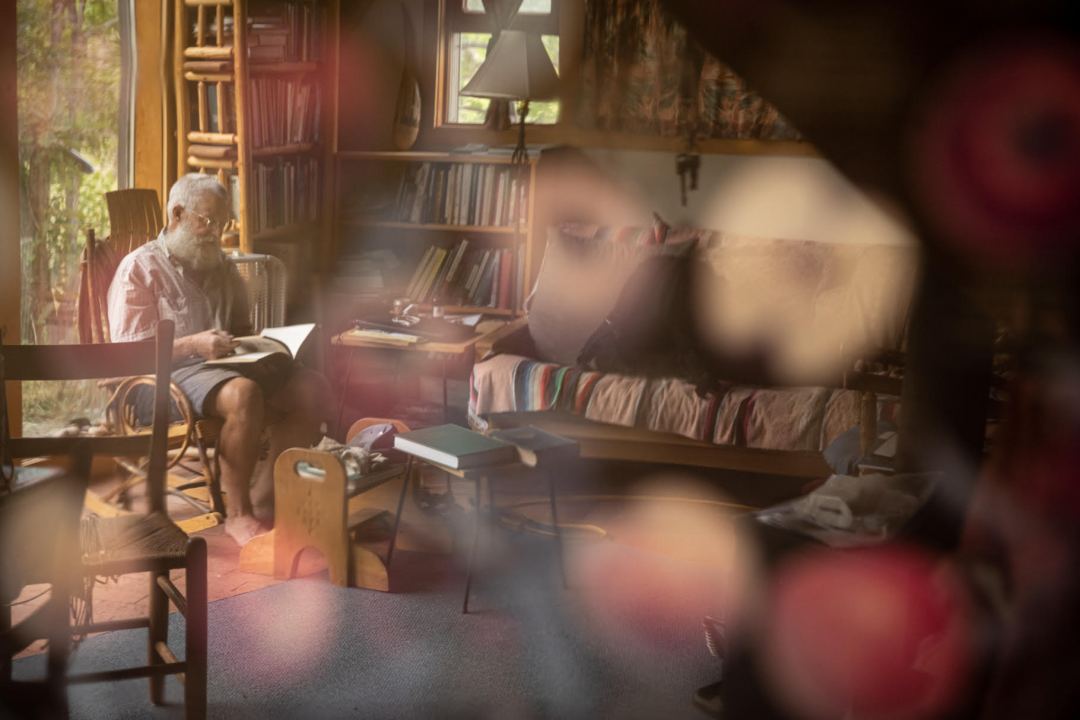

The Deep History of Apples
Gordon Tooley and his wife Margaret Yancey started Tooley’s Trees in Truchas, New Mexico, in the early 1990s. They grow and sell rare and heirloom trees that are well adapted to the semi-arid climate of the region. But just as important as the business is the history of these fruit trees and the genetic preservation of varieties that have very specific characteristics and uses–and the way of life that cultivates a deep relationship with the wildlife, soil, water, and even air in their particular place. We talk about what it means to choose a slower pace of life that favors close observation and low-tech tools over instant gratification.
This interview is part the Good Earth series, a project supported by the New Mexico Department of Agriculture Healthy Soils Initiative and led by photographer Esha Chiocchio. It features a set of eight videos on soil stewards in New Mexico. Please check out the short videos here.
The Tooley video was featured in High Country News, and Esha was interviewed about the series on KUNM.
Show Notes:
2’23 the goodearthmedia.com project
3’51 how Gordon Tooley got started in tree-growing
4’17 homesteaders improved the land by planting trees
4’35 most fruit trees were for making hard cider
4’57 Johnny Appleseed
5’19 17,000 variety of apples were grown in North America
5’46 learned about plants from his father
6’14 we’ve lost half of apple varieties
6’47 giving people choices of different apples that have different uses
7’58 what the land was like when they started cultivating it 30 years ago
8’33 no bare ground is the rule
8’53 supporting beneficial insects and predators
9’14 holistic orchard management–good to do, and tricky economically
9’46 regenerative ag is called “alternative,” when it’s really thousands of years old
10’22 don’t use chemicals because they don’t want to kill the beneficial wildlife
11’24 went from flood irrigation to drip irrigation 25 years ago
12’01 preventing high-velocity runoff
12’40 dormant seeds come back, and they seed native plants
13’03 reinforcing perimeter of the orchard
13’37 working with the flow of air, water, snow
15’11 the extreme complexity of this method of working, the trial and error
16’40 instant gratification doesn’t work long term
17’38 thinking long term, and learning to slow down and finding stewardship and sense of place
18’08 sharing fruit, sharing chores, giving away excess food
18’41 redirecting pent up energy into working on the land, the deeper balance in this work
19’48 doing orchard classes with inmates
20’05 prisoners were the best stewards
20’50 they live day to day, they’re not going to leave the places they’re from
21’42 permanent agriculture, learning over seasons
22’48 wanting to influence on a local and regional scale
23’38 great time for the regenerative agriculture movement
24’17 using low-tech systems
24’31 using the P.A. Yeomans keyline plow
24’57 low tech allows you to pay attention to the details
25’13 didn’t have a tractor, just had hand tools at the beginning
25’46 doing “dust mitigation” projects
26’02 land that was degraded by grazing and how to restore it
27’18 working with cattlemen on land restoration and sustainability of grazing lands
28’41 how they choose the apples to cultivate
29’16 demonstrating a winter red-flesh apple
30’28 crab apples get a bad name
30’57 apples thought to be extinct that get found
31’44 county fair records great for apple history
32’22 the larger enterprise–genetic preservation, taking care of soil and people
33’00 doesn’t know what’s going to happen to the farm after he’s no longer there
33’32 the world as a giant revolving restaurant
35’18 getting harder to find people with crafts and trades
36’10 the fraught time we’re living in
36’38 having to downshift as you age
37’10 reducing inventory
38’04 going to a scale they can manage
38’48 choosing a simple life
39’09 reusing everything
39’28 not fooling themselves that they’re living outside of society
39’47 choosing to do good with modern materials
41’13 making change within yourself
42’09 my community is the plant community
More Episodes
Episode 164 – From Suburban Chicago to Rural Montana: the Journey of a Bison Rancher
From Suburban Chicago to Rural Montana: the Journey of a Bison Rancher Matt Skoglund was an attorney with a conservation non-profit, but over time was drawn to work on the land. With no prior agrarian experience he started a successful bison ranch using regenerative...
Episode 163 – A Matter of Conscience: Will Harris on Regenerating an Industrial Ranch
A Matter of Conscience: Will Harris on Regenerating an Industrial Ranch In his new book, Will Harris describes the moment when he saw that his industrial ranch was cruel to animals and bad for the land. Before he'd ever heard the phrase "regenerative grazing" he...
Episode 162 – The Robber Barons of Today’s Food Industries
The Robber Barons of Today's Food Industries Iowan Austin Frerick saw his home state transform from a world of farms to one of toxic factory food and hollowed out rural communities. Yet he offers optimism and real solutions. Austin Frerick grew up in Iowa, which in...



